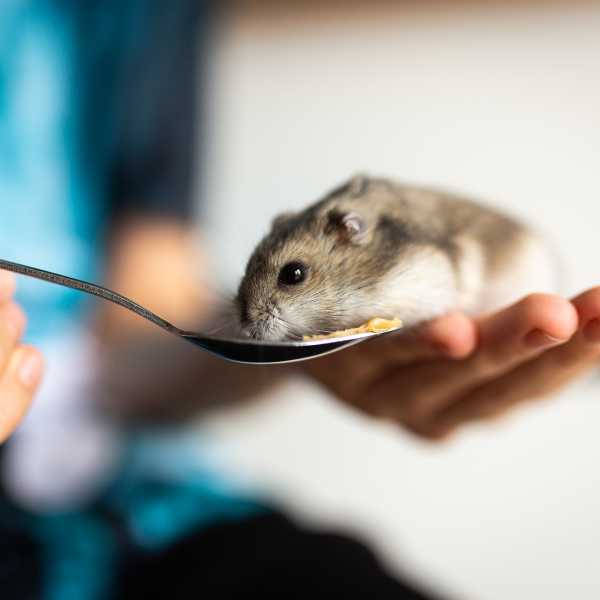
Boost your mental wellbeing by becoming a home and pet sitter
Posted on 17 October, 2022

Photo by Finn on Unsplash
It was World Mental Health Day on 10th October - an awareness day organised by the World Health Organisation[i] which this year aims to make mental health and wellbeing for all a global priority amid concerns around rising mental health issues.
Poor mental health is something that’s been on the rise since the COVID-19 pandemic, especially amongst older people. New research this year by Age UK[ii] revealed the impact the pandemic has had on older people’s mental health and confidence, with many experiencing anxiety, memory loss, low mood and depression.
One way that people can improve their mental wellbeing is by spending time with pets. A YouGov survey earlier this year with UK pet owners found that 90% of dog owners felt mentally healthier thanks to their pet[iii]. Figures were only slightly lower for cat and rabbit owners, at 85% and 81% respectively, showing the positive impact pets can have on mental health.
Pets can boost confidence, reduce stress and improve activity levels, especially dogs which need to be walked regularly. Simply stroking and playing with a pet can relax and calm people down and there have been numerous studies that have shown people with pets have lower blood pressure and are less likely to suffer from depression[iv].
One of the reasons for these therapeutic effects is that pets fulfil the basic human need for touch. Pets love to be petted and touched and most are like little shadows, always wanting to be next to their humans, which is why they make such great companions for older people.
But the great thing is that older people can still have some of these benefits even if they don’t own a pet by becoming a home and pet sitter, especially those that do regular assignments and build up a strong bond with the pets they look after.
Home and pet sitting involves staying in people’s homes when they go away to look after the home and any pets. It appeals to older people as it’s a way to spend time with pets, without the commitment of owning one. Often people choose not to have a pet when they retire so they can have more flexibility over what they do, so this is the next best thing.
By being a homesitter people can enjoy many of the great aspects of pet ownership such as walking dogs, grooming cats and spending time stroking and being in the company of pets, which can improve mental wellbeing. Also as the role is sociable and enables people to meet new people and stay in new places this is great for mental health too.
One retired couple who have been homesitting since retiring are Sue and Roy Strangeway from Lincolnshire. The Strangeways spent their working lives living in Kent but when they retired they moved to the East Midlands. They bought a retirement property but they are not allowed pets. Becoming homesitters means that they get to spend plenty of time with animals, plus they can explore new areas.
Sue says, “Our favourite thing about home and pet sitting is the animals – we get all of the joy without any of the long-term responsibility. I did wonder whether the dogs might pine for their owners when they leave, but once they realise that we know where their food is they’re happy.
“We mainly look after dogs and cats – but we love learning new things and how to look after different animals so we are open to looking after all creatures, great and small. On a recent assignment we looked after 17 parrots and a dog.
“Most of the parrots were in aviaries but there was one in the house, he was beautiful, but every time we went into the room he’d bombard us with questions, ‘where are you going?’ and ‘what are you doing?’ but he didn’t take the slightest bit of notice of our answers.”
The couple put their earnings from home and pet sitting towards holidays, although Sue says the homes they stay in are often so luxurious that if they were hotels the cost of a night’s stay would be astronomical.
One such property they recently stayed in had beautiful gardens where they were able to take the dogs for a walk every day without even leaving the property – the grounds were so large that it took the gardener over two days on a ride-on mower to cut the grass.
Sue’s advice for people considering home and pet sitting is to try it, she says, “I think most people would enjoy it, it’s great to get out and about and meet new people. If you’re thinking about it, give it a whirl.”
If home and pet sitting sounds like a great way to give your mental wellbeing a boost then consider applying for the role. Homesitters is currently recruiting, so take a tour of our web site to find out more and listen to what some of our homesitters have to say about what they enjoy about the role. Visit: www.homesitters.co.uk/become-a-sitter.
You can equally find further information on the Joy of Pets: How They Are Helpful for Mental Health at: www.comparethemarket.com/life-insurance/content/the-joy-of-pets/
Did you know that in 2016, there were 500,000 service dogs? This number highlights the significant impact they have on people's lives. Psychiatric service dogs can be trained to respond to panic attacks and help individuals find their balance during difficult moments. To find out more, please visit: www.zocdoc.com/blog/a-guide-to-psychiatric-service-dogs/
[i] https://www.who.int/campaigns/world-mental-health-day/2022
[ii] https://www.ageuk.org.uk/latest-press/articles/2022/age-uk-press-release-new-research-shows-a-hidden-mental-health-crisis-is-debilitating-older-people/#_edn1
[iii] https://www.veterinary-practice.com/2022/pet-owners-feel-healthier-thanks-to-pets#:~:text=Pets%20such%20as%20cats%20and,patients%20with%20their%20mental%20health..
[iv] https://www.helpguide.org/articles/mental-health/mood-boosting-power-of-dogs.htm
Tags:



